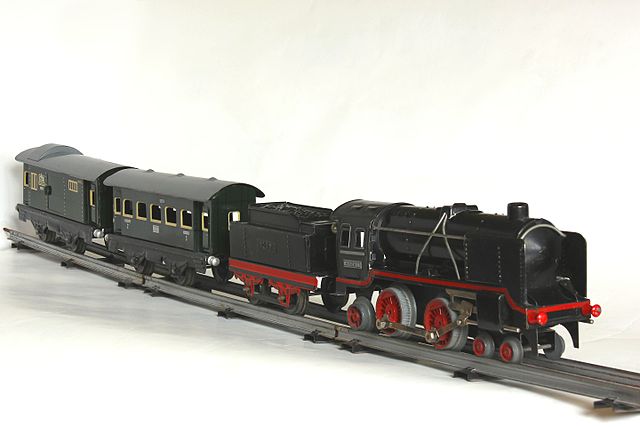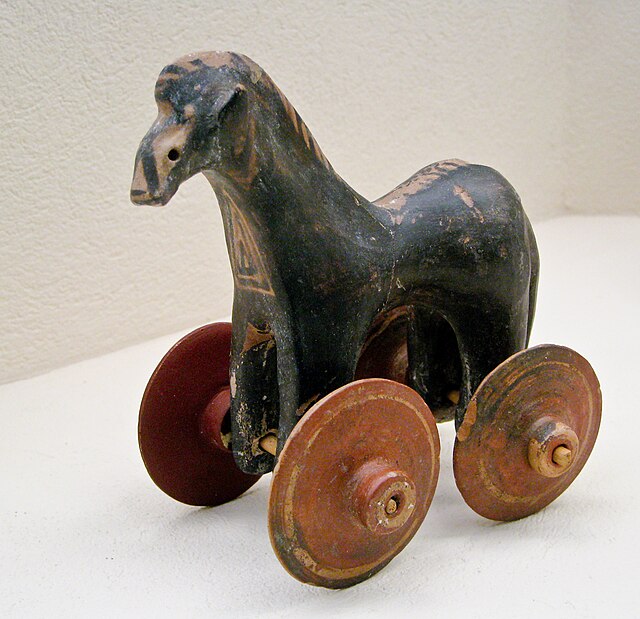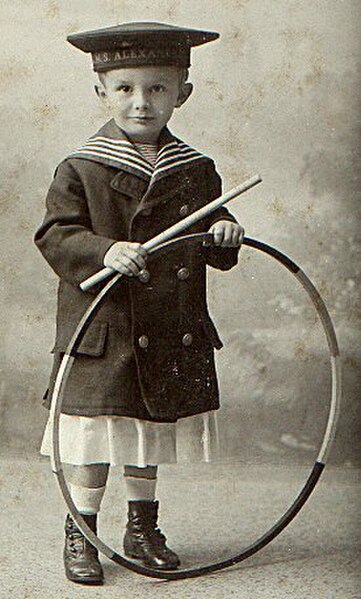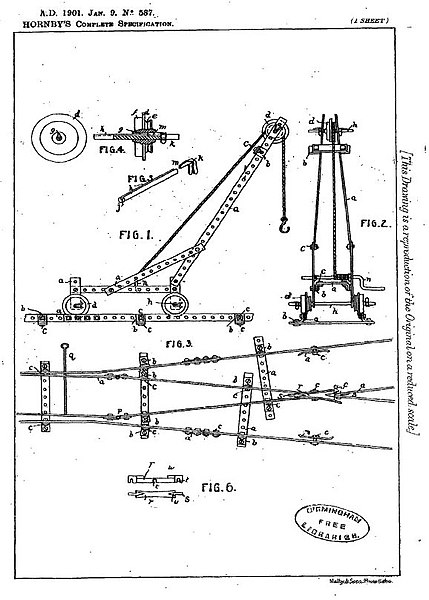A toy train is a toy that represents a train. It is distinguished from a model train by an emphasis on low cost and durability, rather than scale modeling. A toy train can be as simple as a toy that can run on a track, or it might be operated by electricity, clockwork or live steam. It is typically constructed from wood, plastic or metal. Many of today's steam trains might be considered as real ones as well, providing they are not strictly scale or not enough detailed ones in favor of a robustness appropriate for children or an inexpensive production.
0 gauge toy train made by Distler operated by clockwork around 1950
O gauge tinplate trains by Hornby
An O gauge Marx toy train set made in the late 1940s or early 1950s
A colorful EMD GP40-2 emblazoned with the Chessie System logo, one of many wooden toy trains offered by Whittle Shortline
A toy or plaything is an object that is used primarily to provide entertainment. Simple examples include toy blocks, board games, and dolls. Toys are often designed for use by children, although many are designed specifically for adults and pets. Toys can provide utilitarian benefits, including physical exercise, cultural awareness, or academic education. Additionally, utilitarian objects, especially those which are no longer needed for their original purpose, can be used as toys. Examples include children building a fort with empty cereal boxes and tissue paper spools, or a toddler playing with a broken TV remote control. The term "toy" can also be used to refer to utilitarian objects purchased for enjoyment rather than need, or for expensive necessities for which a large fraction of the cost represents its ability to provide enjoyment to the owner, such as luxury cars, high-end motorcycles, gaming computers, and flagship smartphones.
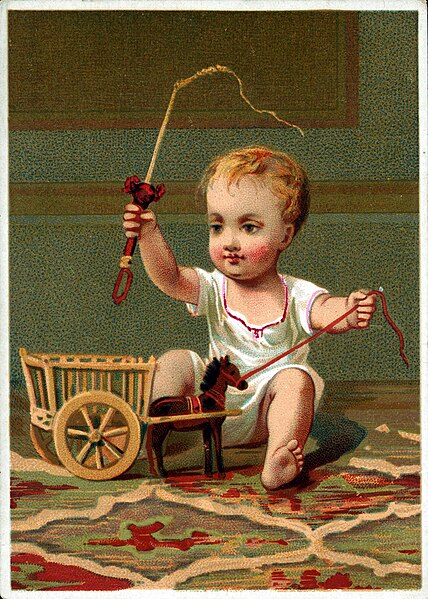
19th century illustration of a child playing with a toy horse and cart
Little horse on wheels, Ancient Greek children's toy. From a tomb dating 950–900 BCE, Kerameikos Archaeological Museum, Athens
A boy with a hoop. Hoops have long been a popular toy across a variety of cultures.
Frank Hornby's 1901 patent number GB190100587A for what later became known as Meccano

